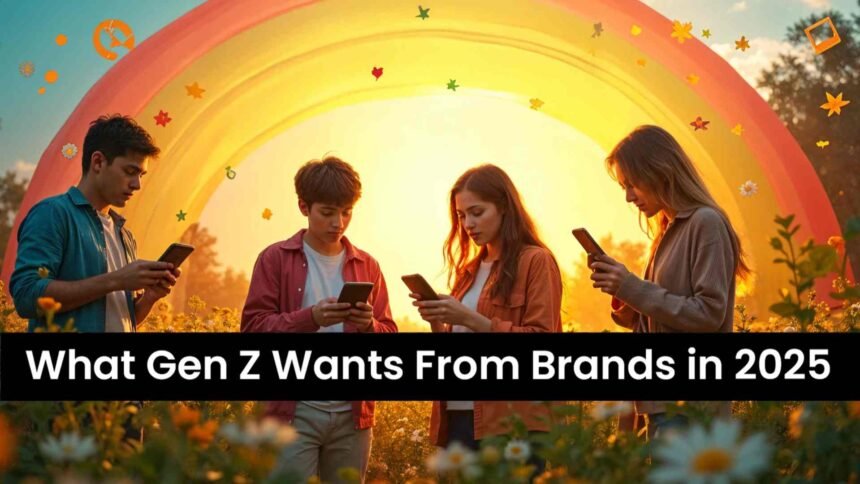Gen Z is reshaping the U.S. consumer market in 2025, driving a fundamental shift in how brands engage, sell, and build loyalty with the next generation of buyers. Born between 1997 and 2012, this generation of digital natives is not only influencing what we buy, but also how, when, and why we buy. With over 68 million members in the U.S. alone, Gen Z holds nearly $360 billion in purchasing power, and their influence is reshaping industries across the board.
From redefining brand loyalty to pushing companies toward greater transparency and sustainability, Gen Z is changing the U.S. consumer market in ways that no previous generation has. Let’s explore seven key ways they’re driving the shift.
1. Digital-First, Always
Gen Z has grown up online—and it shows. Whether shopping for clothes, tech, or food, this generation prefers to do it digitally. In fact, over 70% of Gen Z consumers say they prefer to shop online over in-store. Platforms like TikTok, Instagram, and YouTube aren’t just for entertainment—they’re search engines, product review hubs, and discovery tools all in one.
What’s more, Gen Z expects seamless digital experiences—from fast-loading websites to mobile-first design and social commerce. Brands that lag behind digitally risk losing relevance.
2. Social Media Drives Spending
Gen Z doesn’t just follow trends—they start them. Nearly 80% of Gen Z shoppers say their purchasing decisions are influenced by social media, especially TikTok and Instagram Reels. This shift has fueled a rise in social commerce, where products are bought directly within apps.
Influencers, micro-creators, and even peer reviews carry more weight than traditional advertising. Authenticity matters. Brands that collaborate with real voices and communities, rather than celebrity endorsements, tend to perform better among Gen Z.
3. Values Over Price
Unlike older generations, Gen Z is deeply values-driven. They care about a brand’s stance on social issues, environmental practices, and workplace ethics. A 2024 study by McKinsey showed that 73% of Gen Z respondents would pay more for sustainable products.
This ethical lens has changed the landscape for businesses. From diversity in advertising to climate pledges and cruelty-free products, Gen Z expects brands to walk the talk—and they’ll hold them accountable if they don’t.
4. Sustainability Is Non-Negotiable
For Gen Z, sustainability isn’t a buzzword—it’s a baseline. This generation is increasingly rejecting fast fashion, opting instead for eco-conscious brands, secondhand shopping, and circular economy models. Resale platforms like Depop, ThredUp, and Poshmark have exploded in popularity thanks to this shift.
Brands that integrate sustainability into their DNA—not just their marketing—will win loyalty in the long term. Transparency, traceability, and low-impact packaging are now major purchase drivers.
5. Financial Caution Meets Entrepreneurial Spirit
Having grown up through economic uncertainty—from the Great Recession aftermath to the COVID-19 pandemic—Gen Z is financially cautious. Many prioritize saving, budgeting apps, and side hustles over debt-heavy lifestyles.
At the same time, they’re highly entrepreneurial. Platforms like Etsy, Shopify, and even TikTok Shop have enabled young creators to monetize their skills and passions. The future U.S. consumer market is not just being served by Gen Z—it’s being built by them.
6. Personalization Wins
Gen Z consumers expect personalized experiences across their shopping journey. Generic emails and one-size-fits-all advertising don’t cut it. They want content, products, and recommendations tailored to their preferences, habits, and identities.
AI-powered shopping assistants, quiz-based ecommerce sites, and data-driven product suggestions are quickly becoming the norm. Brands investing in hyper-personalization see better retention and higher conversion rates with Gen Z.
7. Experiences Over Possessions
While Millennials were known for valuing experiences, Gen Z has taken it a step further. From digital collectibles to live virtual events, Gen Z is redefining what it means to own or experience something of value.
They are also blending physical and digital experiences (phygital), often valuing brand engagement and storytelling as much as the product itself. This shift is impacting how brands market everything from sneakers to skincare.
The Future Belongs to the Bold
Gen Z is not just another consumer group; they’re a cultural force, a tech-savvy generation demanding change, and a catalyst for a new kind of commerce. Brands that want to succeed in the U.S. consumer market in 2025 must understand that Gen Z is more than a demographic; they are a mindset.
Meeting them where they are digitally, ethically, and creatively is no longer optional. It’s essential.
If companies can adapt to this new reality with authenticity and agility, they’ll not only thrive in today’s market, but they’ll also future-proof themselves for what comes next.









